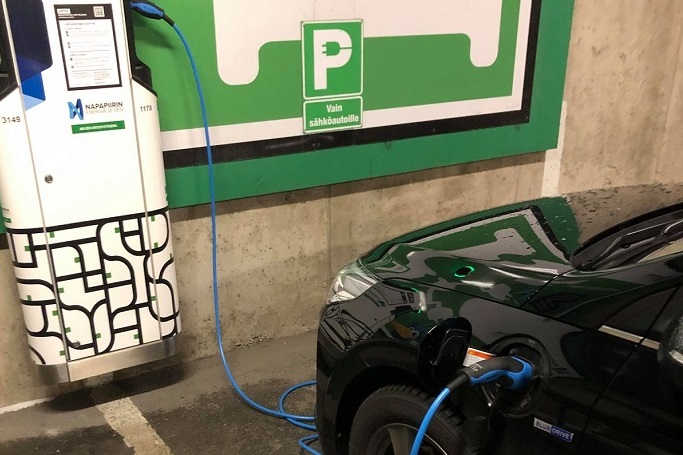Govt to extend subsidy period for low-emission vehicles purchase
Published : 21 Sep 2022, 09:25
The government proposed that the application periods should be extended for the purchase subsidies for electric and gas-fuelled vans and trucks, said the Ministry of Transport and Communications.
The government submitted the legislative proposal to Parliament on Monday.
According to the draft act, the application period for the purchase subsidy for electric and gas-fuelled vans and trucks would be extended until the end of 2024, as the government has allocated additional financing for this scheme.
Under the current act, the application period for the purchase subsidy would end no later than 31 December 2022 for vans and no later than 31 March 2023 for trucks.
The period of validity of the Act would be extended until 31 December 2026.
In contrast, the application periods would be shortened by three months for the purchase subsidy for fully electric cars, i.e. battery electric vehicles (BEVs), and the conversion subsidy for passenger cars, as the Government has not allocated an appropriation for these schemes for 2023. The application periods would close on 31 December 2022.
“This is a positive problem. Many are concerned about the closure of the purchase subsidy scheme, but for society and the climate, it is great news that the transition to electric transport is advancing much faster than anticipated. The fact that demand has exceeded supply shows that the purchase subsidy scheme has fulfilled its role as a catalyst for change,” said Minister of Transport and Communications Timo Harakka.
The new act would also allow the processing of the purchase subsidies applied for BEVs under the current Purchase and Conversion Subsidies Act (971/2017) until the end of the validity of the act if the vehicle cannot be registered for the first time in 2022.
The decision on granting a purchase subsidy cannot be made before the vehicle's first registration. Due to a lack of components for electric vehicles, the vehicle delivery times have continued to be exceptionally long.
This makes it unlikely that there will be enough time for the first registration of all BEVs within the scheme in 2022 even if the subsidy applications were sent under the current act. The authority responsible for granting the subsidies is Traficom, the Finnish Transport and Communications Agency.
The draft act is included in the 2023 budget proposal and will be discussed alongside it. The Government proposes EUR 1.5 million in financing for purchasing electric and gas-fuelled vans and EUR 1 million for purchasing electric and gas-fuelled trucks in 2023.
The amended purchase and conversion subsidy scheme would target especially heavy goods vehicles and vans. The government has not allocated an appropriation for BEV purchase subsidies or passenger car conversion subsidies for 2023. However, closing the subsidy scheme for BEVs is thought to have only minor impact on their demand.
“From now on, the subsidy schemes will largely target vans and trucks. This is necessary because the uptake of electric vehicles in heavy goods transport has been slower than in passenger car transport,” said Harakka.
“The Government will continue to support the electrification of cars through taxation. We have already abolished the vehicle tax for fully electric cars. I am also proposing that the vehicle tax be lowered for other electric and gas-fuelled cars. We are seeking to amend the law to make it easier to convert cars to run on ethanol. And we will explore how future forms of support should take hydrogen into account,” said Harakka.
A referral debate will be held on the proposal now submitted by the Government to Parliament. The timetable for the debate will be listed on Parliament’s website (upcoming plenary sessions). After the referral debate, the proposal will be sent to a Parliamentary Committee.
The act amending the Act on Fixed-Term Subsidies for Purchasing and Converting Vehicles to Use Alternative Fuels or Propulsion Systems is expected to enter into force on 1 January 2023.


